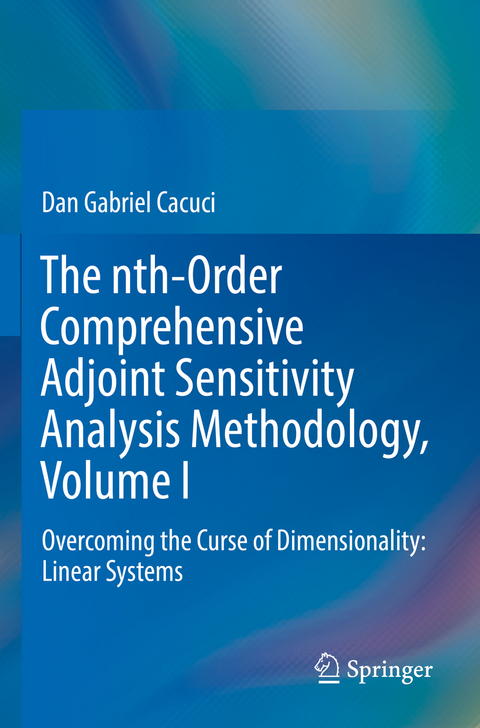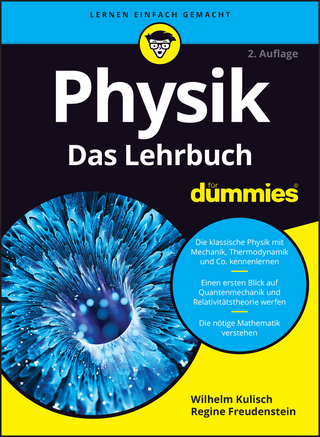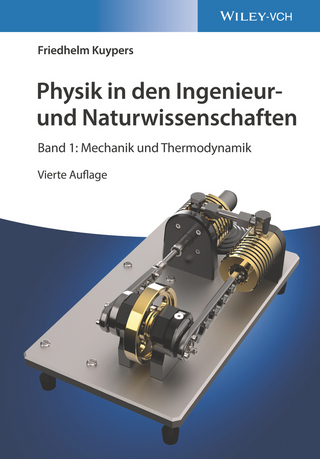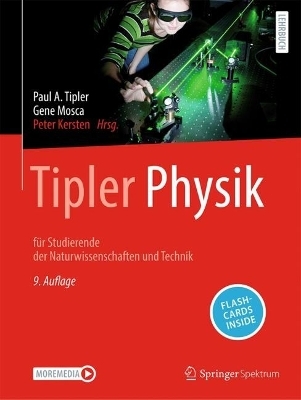
The nth-Order Comprehensive Adjoint Sensitivity Analysis Methodology, Volume I
Springer International Publishing (Verlag)
978-3-030-96366-8 (ISBN)
The computational models of physical systems comprise parameters, independent and dependent variables. Since the physical processes themselves are seldom known precisely and since most of the model parameters stem from experimental procedures which are also subject to imprecisions, the results predicted by these models are also imprecise, being affected by the uncertainties underlying the respective model. The functional derivatives (also called "sensitivities") of results (also called "responses") produced by mathematical/computational models are needed for many purposes, including: (i) understanding the model by ranking the importance of the various model parameters; (ii) performing "reduced-order modeling" by eliminating unimportant parameters and/or processes; (iii) quantifying the uncertainties induced in a model response due to model parameter uncertainties; (iv) performing "model validation," by comparing computations to experiments to address the question "does the modelrepresent reality?" (v) prioritizing improvements in the model; (vi) performing data assimilation and model calibration as part of forward "predictive modeling" to obtain best-estimate predicted results with reduced predicted uncertainties; (vii) performing inverse "predictive modeling"; (viii) designing and optimizing the system.
This 3-Volume monograph describes a comprehensive adjoint sensitivity analysis methodology, developed by the author, which enables the efficient and exact computation of arbitrarily high-order sensitivities of model responses in large-scale systems comprising many model parameters. The qualifier "comprehensive" is employed to highlight that the model parameters considered within the framework of this methodology also include the system's uncertain boundaries and internal interfaces in phase-space. The model's responses can be either scalar-valued functionals of the model's parameters and state variables (e.g., as customarily encountered in optimization problems) or general function-valued responses.
Since linear operators admit bona-fide adjoint operators, responses of models that are linear in the state functions (i.e., dependent variables) can depend simultaneously on both the forward and the adjoint state functions. Hence, the sensitivity analysis of such responses warrants the treatment of linear systems in their own right, rather than treating them as particular cases of nonlinear systems. This is in contradistinction to responses for nonlinear systems, which can depend only on the forward state functions, since nonlinear operators do not admit bona-fide adjoint operators (only a linearized form of a nonlinear operator may admit an adjoint operator). Thus, Volume 1 of this book presents the mathematical framework of the nth-Order Comprehensive Adjoint Sensitivity Analysis Methodology for Response-Coupled Forward/Adjoint Linear Systems (abbreviated as "nth-CASAM-L"), which is conceived for the most efficient computation of exactly obtained mathematical expressions of arbitrarily-high-order (nth-order) sensitivities of a generic system response with respect to all of the parameters underlying the respective forward/adjoint systems. Volume 2 of this book presents the application of the nth-CASAM-L to perform a fourth-order sensitivity and uncertainty analysis of an OECD/NEA reactor physics benchmark which is representative of a large-scale model comprises many (21,976) uncertain parameters, thereby amply illustrating the unique potential of the nth-CASAM-L to enable the exact and efficient computation of chosen high-order response sensitivities to model parameters. Volume 3 of this book presents the "nth-Order Comprehensive Adjoint Sensitivity Analysis Methodology for Nonlinear Systems" (abbreviation: nth-CASAM-N) for the practical, efficient, and exact computation of arbitrarily-high orderse
lt;p>Professor Cacuci's career spans over 40 years in the field of nuclear science and energy, encompassing both academia and large-scale multidisciplinary research centers. His scientific expertise includes predictive best-estimate analysis of large-scale physical and engineering systems, large scale scientific computations and, within nuclear science and engineering, reactor multi-physics, dynamics, and safety. As Scientific Director of The French Alternative Energies and Atomic Energy Commission's Nuclear Energy Pole, Dr. Cacuci oversaw the scientific activities of over 7000 scientists working in nuclear energy. Dr. Cacuci was a member of the Founding Leadership Team of DOE's Consortium for Light Water Reactor Simulations. Since 1984, Prof. Cacuci has been the Editor of "Nuclear Science and Engineering," a research journal of the American Nuclear Society. He has received many prestigious awards, including four titles of Doctor Honoris Causa, the E. O. Lawrence Award and Gold Medal from the US DOE, the Alexander von Humboldt Prize for Senior Scholars and from the American Nuclear Society, the Arthur Holly Compton Award, the Eugene P. Wigner Award, the Glenn Seaborg Medal, Young Members Engineering Achievement Award, and ANS Fellow. He is a member of several international and national academies of arts and sciences, has made over 600 presentations worldwide, has authored 4 books, 7 book chapters, over 200 peer-reviewed articles, and has edited the comprehensive Handbook of Nuclear Engineering. He is the Director of the Center of Economic Excellence in Nuclear Science and Energy and SmartState Endowed Chair Professor of Mechanical Engineering at University of South Carolina.
Chapter 1. Introduction and Motivation: Breaking the Curse of Dimensionality in Sensitivity and Uncertainty Analysis. Part A: Function-Valued Responses.- Chapter 2. Part A: Function-Valued Responses-The First- and Second-Order Comprehensive Adjoint Sensitivity Analysis Methodologies for Linear Systems with Function-Valued Responses.- Chapter 3. The Third-Order Comprehensive Adjoint Sensitivity Analysis Methodology (C-ASAM-3) for Linear Systems with Function-Valued Responses.- Chapter 4. The Fourth-Order Comprehensive Adjoint Sensitivity Analysis Methodology (C-ASAM-4) for Linear Systems with Function-Valued Responses.- Chapter 5. The Nth-Order Adjoint Sensitivity Analysis Methodology (C-ASAM-N) for Linear Systems with Function-Valued Responses.- Chapter 6. Part B: Scalar-Valued Responses-The Fourth-Order Comprehensive Adjoint Sensitivity Analysis Methodology (C-ASAM-4) for Linear Systems with Scalar-Valued Responses.- Chapter 7. The Nth-Order Adjoint Sensitivity Analysis Methodology(C-ASAM-N) for Linear Systems with Scalar-Valued Responses.
| Erscheinungsdatum | 22.07.2023 |
|---|---|
| Zusatzinfo | XII, 362 p. |
| Verlagsort | Cham |
| Sprache | englisch |
| Maße | 155 x 235 mm |
| Gewicht | 575 g |
| Themenwelt | Naturwissenschaften ► Physik / Astronomie ► Allgemeines / Lexika |
| Naturwissenschaften ► Physik / Astronomie ► Theoretische Physik | |
| Schlagworte | Diffusion Equation • exact first-order response sensitivites • exact fourth-order sensitivities • exact Nth-order sensitivities • exact second-order sensitivities • exact third-order sensitivities • finite-dimensional (matrix) systems • heat conduction and convection • linear finite-dimensional systems • linear infinite-dimensional systems • radiation transport • sensitivity analysis for linear systems • uncertainty analysis for linear systems |
| ISBN-10 | 3-030-96366-7 / 3030963667 |
| ISBN-13 | 978-3-030-96366-8 / 9783030963668 |
| Zustand | Neuware |
| Haben Sie eine Frage zum Produkt? |
aus dem Bereich


